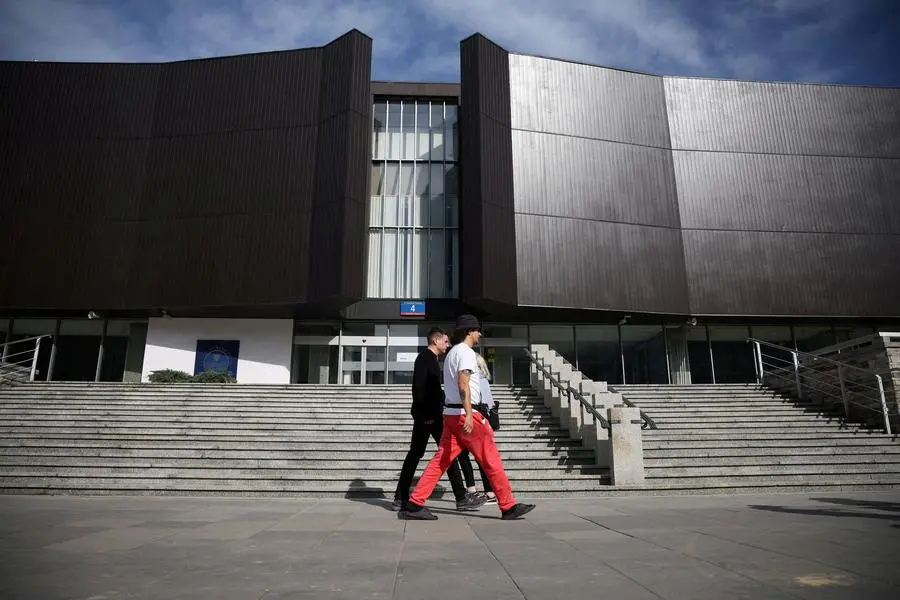PHOTO
Hawkish members of Poland's central bank on Friday criticised its shock rate cut decision this week, with one saying a reversal could be needed amid accusations the move was politically motivated ahead of elections next month.
Critics say Wednesday's decision to cut the main interest rate by 75 basis points to 6.00% just weeks before Oct. 15 elections and with inflation in double digits last month, has damaged the central bank's credibility.
A press conference with National Bank of Poland (NBP) Governor Adam Glapinski, an ally of the ruling Law and Justice (PiS) party, on Thursday did little to calm markets. The zloty plunged further and economists reacted sceptically to his explanations for the cut.
"It's time to abandon the illusions - NBP is no longer an independent central bank," one of Poland's leading daily newspapers, Rzeczpospolita, said on its front page on Friday.
Hawkish members of the Monetary Policy Council (MPC), Ludwik Kotecki and Joanna Tyrowicz, criticised the decision to cut the cost of credit for the first time since the COVID-19 pandemic.
"If it turned out that the disinflationary trend is not lasting, then I can imagine that the council will return to talking about raising interest rates," Kotecki told the Wp.pl website.
"We cannot allow ourselves to no longer fight against inflation and that is why it is a very risky decision," he added.
In a separate interview with Business Insider, Kotecki said the credibility of the NBP had taken a hit from the rate cut and that the move had been seen as political.
Glapinski said on Thursday that the central bank's day-to-day tracking had shown that inflation had fallen to single digits, therefore meeting one of the conditions he had set for cutting rates.
However, in a post on the social media platform LinkedIn, MPC member Joanna Tyrowicz said: "We have no indication that inflation is under control in Poland".
LASTING TREND
Other rates-setters took a more positive view on the inflation outlook, which has fallen from a peak of 18.4% in February to 10.1% in August.
"What we saw during the last meeting confirmed my belief that this disinflationary trend is permanent and its pace will accelerate in the coming months," central banker Henryk Wnorowski told private broadcaster Biznes 24.
Another MPC member Gabriela Maslowska said further rate cuts before the central bank's next set of inflation forecasts is published in November were possible.
"I cannot announce further interest rate cuts, but of course I think it cannot be ruled out," state-run news agency PAP quoted her as telling Radio Lublin.
NEGATIVE RESPONSE
The zloty, which plunged 3% by Thursday's close following the rate decision recovered some of its losses on Friday was around 0.1% firmer on the day as of 1100 GMT.
"In our view, the market's negative response to the decision raises the possibility that interest rates will ultimately need to remain higher than they otherwise would have done," Goldman Sachs said in a note.
Marek Drimal, a strategist at Societe Generale in London, said that monetary policy shift was possible.
"In our view, the NBP will either slow the pace of cuts considerably after the October meeting, or may even reverse gears and tighten in response to solid wage growth and sticky core inflation," he said. "But for now, significant uncertainty remains over the next NBP steps in October."
(Reporting by Alan Charlish, Pawel Florkiewicz in Warsaw, Karin Strohecker and Marc Jones in London, Editing by Ros Russell)





















